Nikujaga (Japanese Beef and Potato soup) is a classic Japanese food and loved by everyone in Japan. Sliced beef simmered with potatoes, shirataki noodles, carrots, and onion in dashi soup. You can make this delicious food with simple steps!
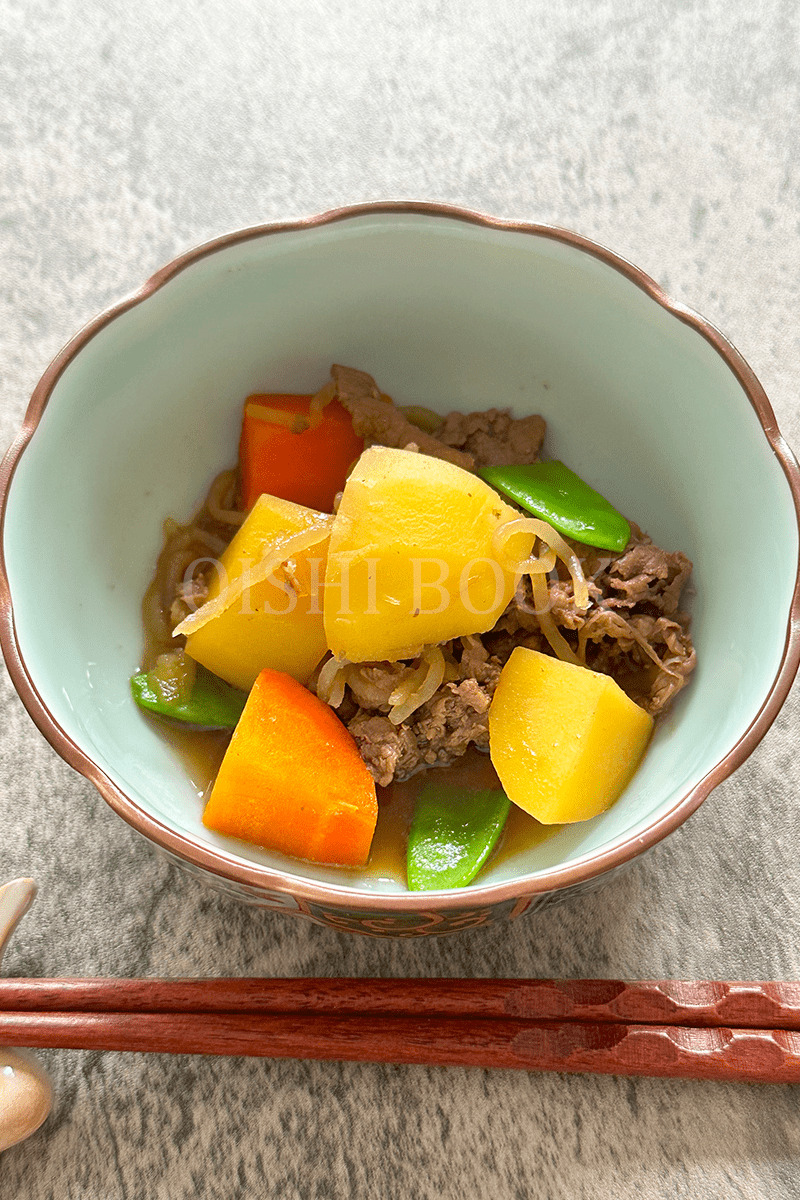
Hi everyone! Today I am going to share one of the most classic Japanese recipes called Nikujaga.
What is Nikujaga?
Nikujaga means meat (niku) and potatoes (jaga, an abbreviation for Jaga-imo). It contains sliced meat, potatoes, onion, carrots, shirataki noodles and seasonings. This is also a type of Japanese stewed dish called Nimono(Japanese: Nimono “煮物”). If you happen to visit Japan, you can probably find Nikujaga in Izakayas, so please try some 🙂 ! The pronunciation of Nikujaga is “knee-ku-ja-gah”.
In Japan, everyone’s mother has their own flavor Nikujaga (Japanese: ofukuro-no-aji “おふくろの味”) and each household makes it slightly differently. My mom makes her own Nikujaga and every time I go back to Japan, I ask her to cook some because it is warm and makes me remember my childhood. Nikujaga is a traditional dish and recipe that Japanese mothers pass down from generation to generation.
What is the Origin of Nikujaga?
The roots of Nikujaga, popular as a home-cooked dish, are actually in England! There are various theories about its origin, but the current theory is that it originated from Heihachiro Togo, the navy commander who defeated the Baltic Fleet in the Russo-Japanese War. Togo, who studied in England from 1870 to 1878, was unable to forget the taste of the beef stew he ate there, so he ordered the head chef of a warship to make it. However, the head chef did not know demi-glace sauce and was having a hard time. It seems that the nikujaga stewed with sugar and soy sauce was created based only on the hints of ingredients such as “beef, carrots, onions, and potatoes”. As a result, a dish was created that did not look like the beef stew Togo imagined. But it had a great taste so it became a popular menu item in the navy, and gradually spread to ordinary households. By the way, it is said to have originated in the naval port of the former navy, but it is still unknown whether it was Kure in Hiroshima Prefecture or Maizuru in Kyoto Prefecture.
7 Tips to Make Delicious Nikujaga
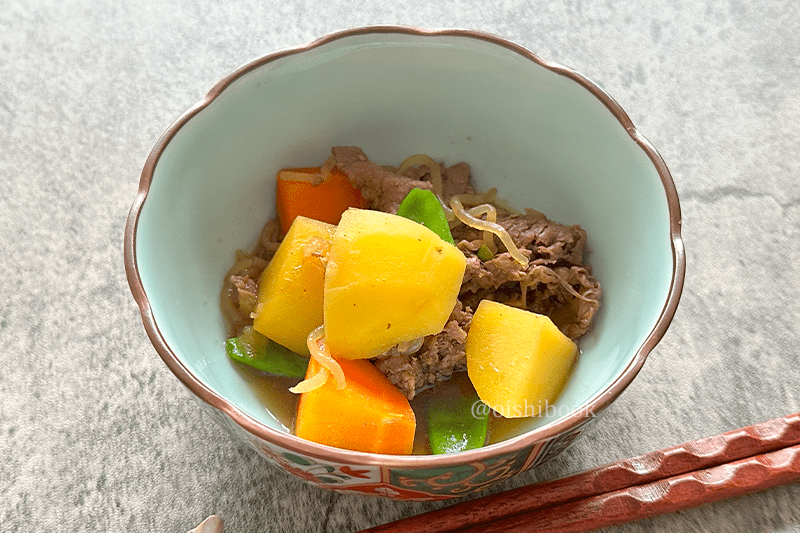
Tip1 : Use Yukon Gold (Yellow Potato)
The classic Nikukaga recipe usually uses May Queen, a type of potatoes popular in Japan. In the states, the most similar type of potato is yukon gold (yellow potato). This potato is suited for stew type dishes because it keeps its form better when stewed.
Tip2 : Soak the Potatoes
You want to soak the potatoes in water for at least 10 minutes to get rid of excess starch. This will help your potatoes keep their shape while cooking.
Tip3 : Cut Vegetables into Chunks
Cutting the vegetable into chunks is classic for Nikujaga and it helps keep them from breaking down too much while cooking. If you cut them too small, the vegetables break easily and don’t give you a cozy nikujaga texture. The ideal size pieces of potatoes and carrots are about 1 inch across. This size is perfect and it cooks perfectly.
Tip4 : Use Dashi Instead of Water
Some people use just water instead of using dashi, but I recommend using dashi (how to make Dashi page). If you want to use just water, you can simply substitute 2/3 – 1 cup of water instead of dashi.
Tip5 : Bring Mirin and Sake to Boil Once
Please bring mirin and sake to boil once to allow the alcohol to evaporate. After boiling, please boil at least 1 minute.
Tip6 : Use Aluminum as a Lid
This is called “otoshibuta” and the purpose of this is to maintain the shape of the vegetables being stewed. Make sure to crumple the aluminum foil once before covering to give the foil a rougher texture. This helps prevent anything from sticking to the foil. Also don’t forget to poke holes in the aluminum to let out steam.
Tip7 : Add Soy Sauce Last
You want to add the soy sauce last in order to get more tasty Nikujaga. This is really key! If you add soy sauce at the beginning, the taste gets too deep. Because soy sauce is easily absorbed, you want to add it last.
Ingredients for Nikujaga
Here are the Nikujaga ingredients!
- carrot
- large onion
- yellow potatoes
- snow peas
- thinly cut beef
- Shirataki
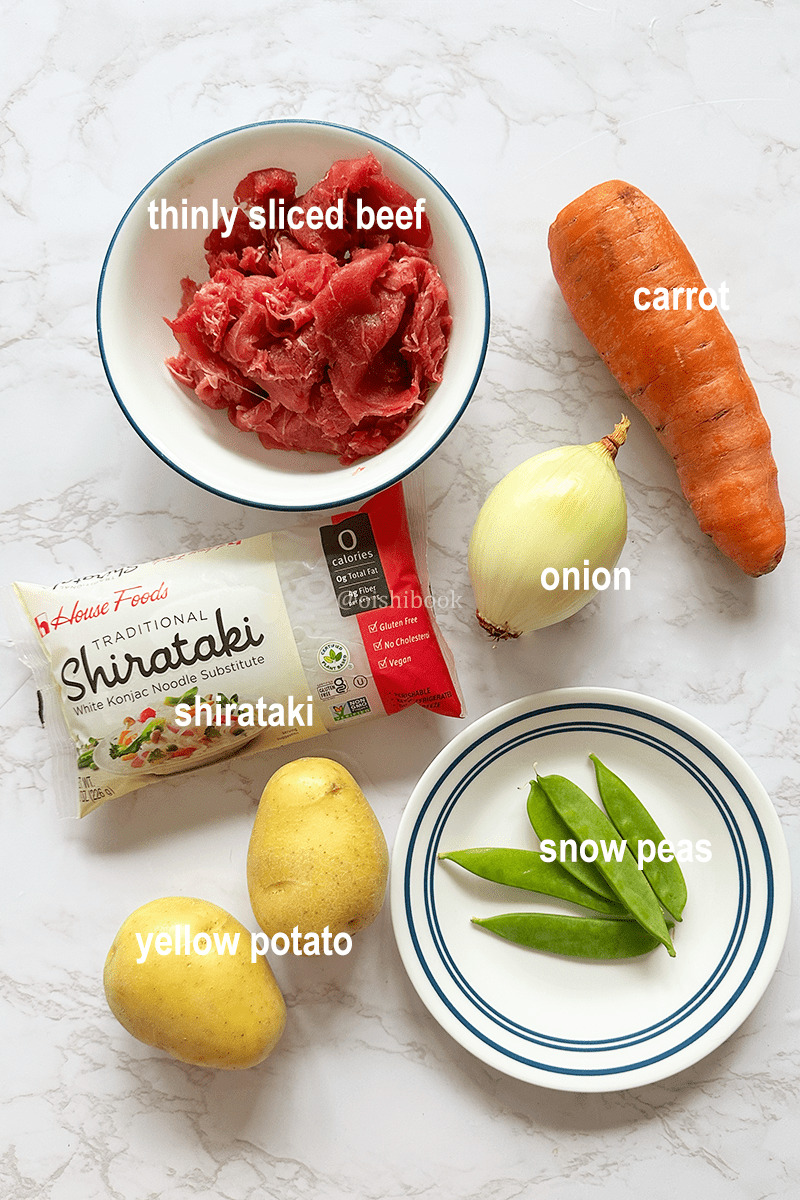
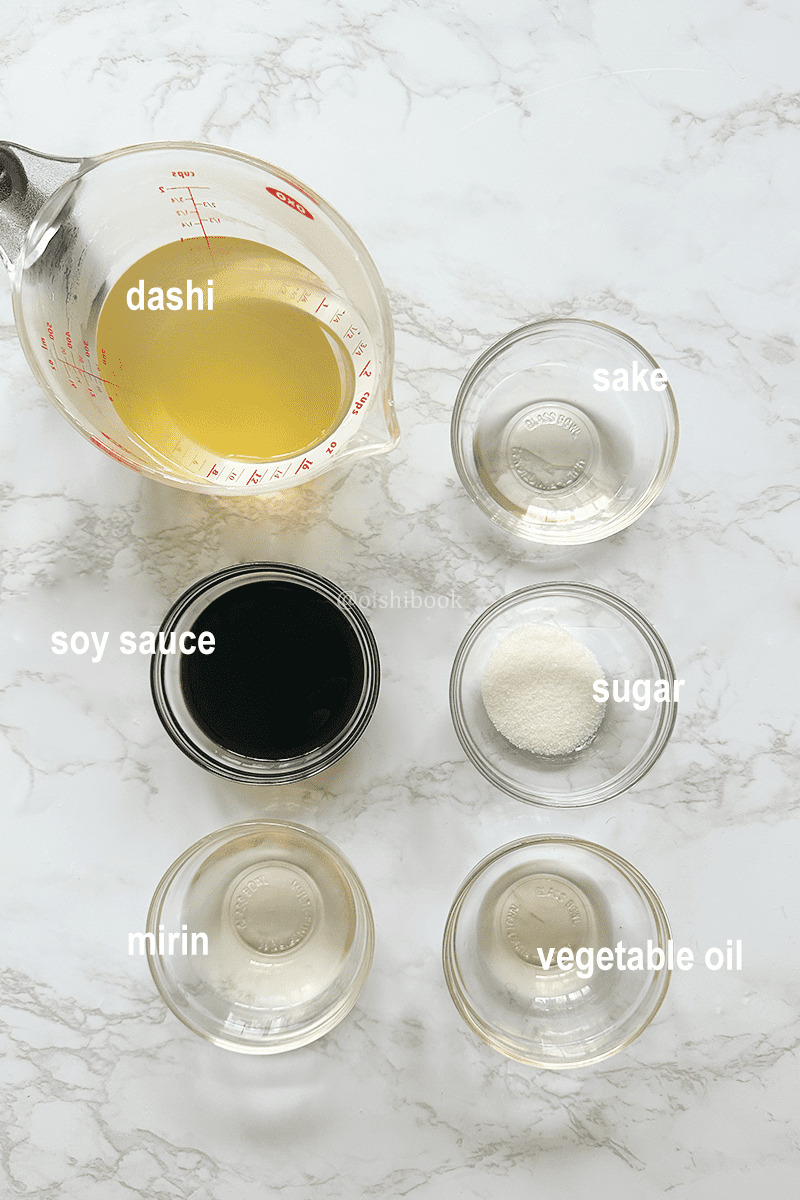
Q&A What is Shirataki (Konnyaku noodle)
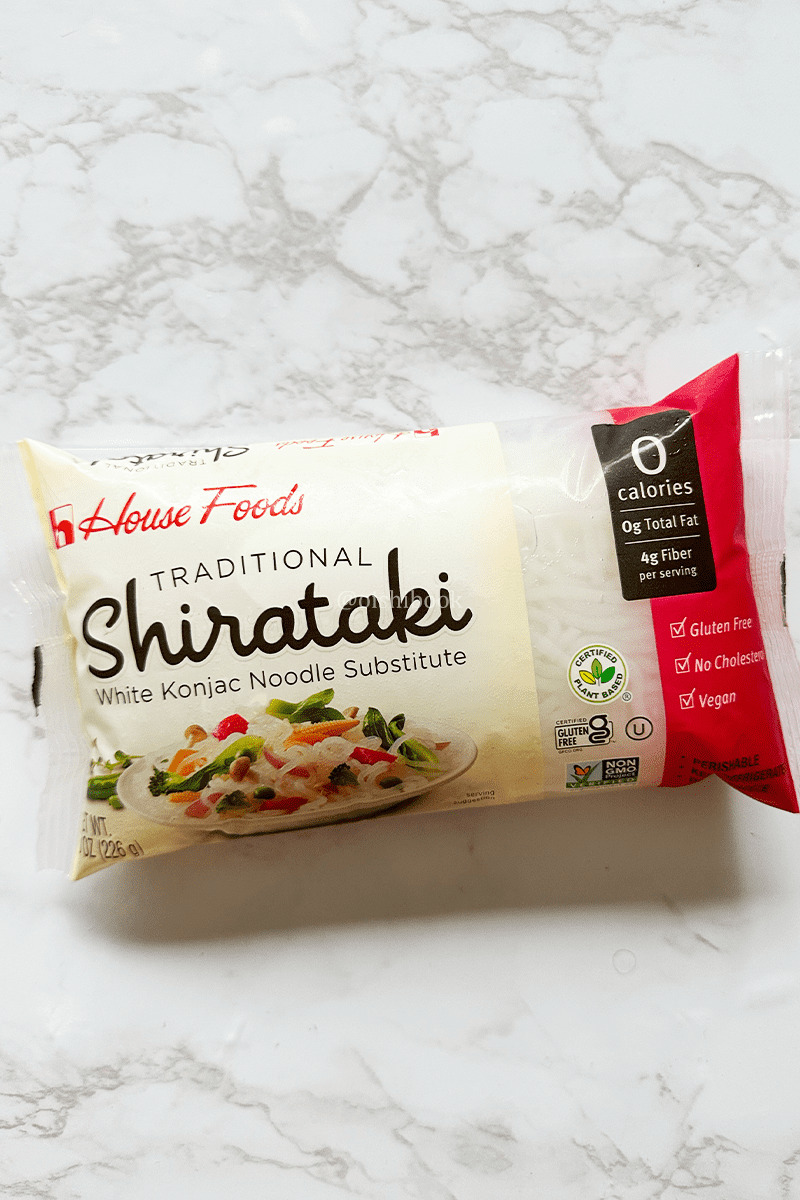
Have you ever heard of Konnyaku noodles (Japanese: Shirataki) ? This may be unfamiliar to some of you. Shirataki noodles are made from the konjac yam and are translucent. The word shirataki means “white waterfall”, and they’re named that because of their appearance.
This is a must have for making Nikujaga. When you first open the packaging, the water the noodles comes in will smell slightly fishy. However, after rinsing the noodles off this smell will go away completely.
To rinse the noodles, place about 2 liters of water in a pot. When it boils, add the shirataki noodles and cook for 2 minutes. Turn the heat off and drain the boiling water. Wash the shirataki in cold running water.
Where to Buy Shirataki
Here are some places you can purchase!
- Japanese grocery store
- Japanese online grocery store
- Local grocery stores
Shirataki is getting popular at even local grocery stores. So, you might find it easily at your local stores. It is mostly likely placed near where tofu is placed.
Q&A Where to Buy Thinly Sliced Beef?
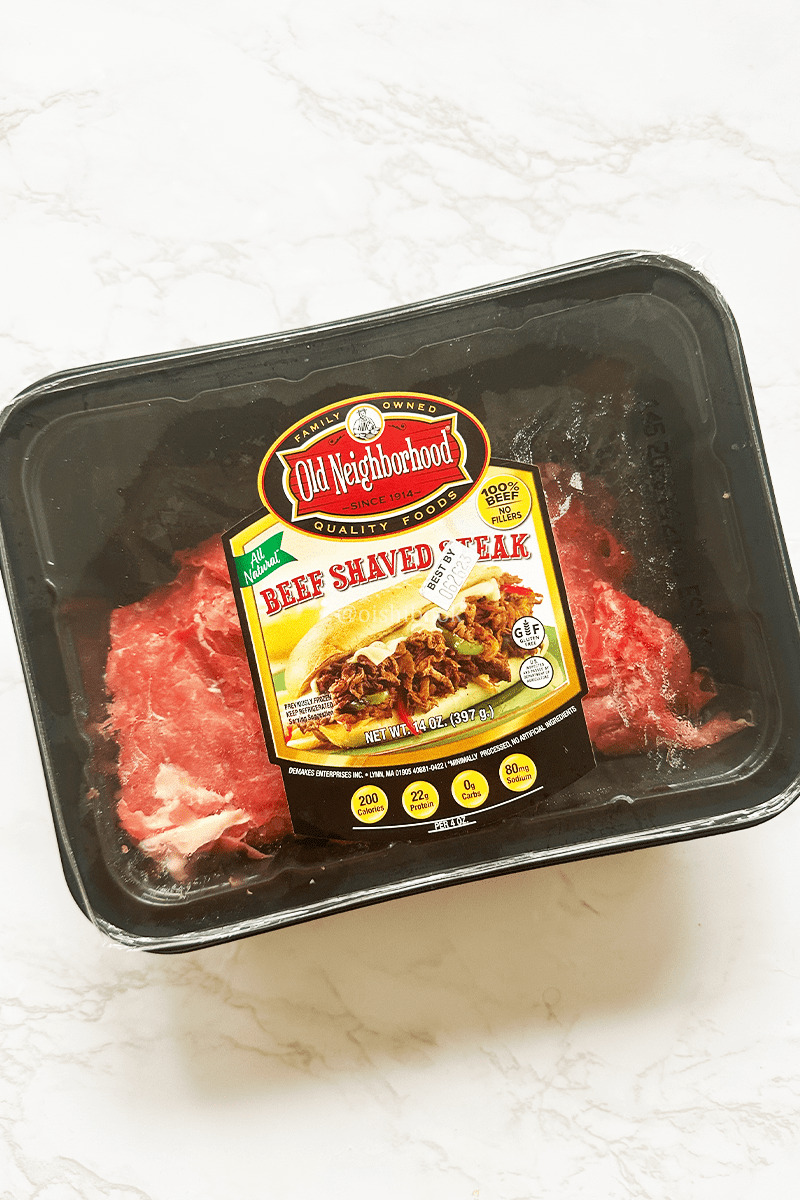
In Japan, you can find thinly sliced meat in every grocery store. In the states, it is very hard to find. I sometimes find it at my usual grocery store, but if you can’t find it here’s some options:
- Japanese online grocery store
- Japanese or Korean grocery store
- Make it by yourself
Personally I prefer making the thinly sliced meat by myself if I can’t find it. Here is the best explanation how to make thinly sliced beef at home!
How to Make Thinly Sliced Beef
- Put the meat in a Ziploc
- Remove the air and close tight
- Put in the freezer for 2 hours
- Keep at room temperature for 20 minutes
- Take out from the Ziploc and slice thinly.
Q&A Can I Replace Beef with Pork?
Honestly, you can use either beef or pork meat and they are both always so tasty. They’re both great for making the best Nikujaga. Here are the little differences between pork nikujaga and beef nikujaga.
- Pork nikujaga : light taste
- Beef nikujaga : rich taste
Use either one that you prefer or is easy to get!
Similar Recipes to Nikujaga on Oishi Book
- Chanko Nabe (ちゃんこ鍋)
- Japanese Potato Salad (ポテトサラダ)
- Cream Stew Recipe ( クリームシチュー)
- Hayashi Rice Recipe ( ハヤシライス)
CHECK Stay in touch with me on Instagram and Pinterest to get the latest recipes! DM or comment me on Instagram if you have any questions or feedback!
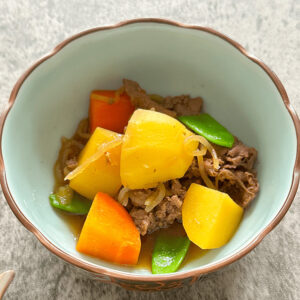
Nikujaga ( Japanese Beef and Potatoes )
Ingredients
- 1/2 carrot about 100g
- 1/2 large onion about 115-135g
- 2 yellow potatoes about 200-250g
- 4-5 snow peas You can also use green beans
- 200 g thinly cut beef
- 1 package shirataki noodles
- 1 Tablespoon vegetable oil
- 1 cup dashi*1 HERE is how to make dashi. If you don't have ingredients for making dashi, replace 2/3 cup of water for 1 cup of dashi instead.
Instructions
Preparation
- Let's make dashi first! HERE is how to make!
Let's make!
- Gather all the ingredients.
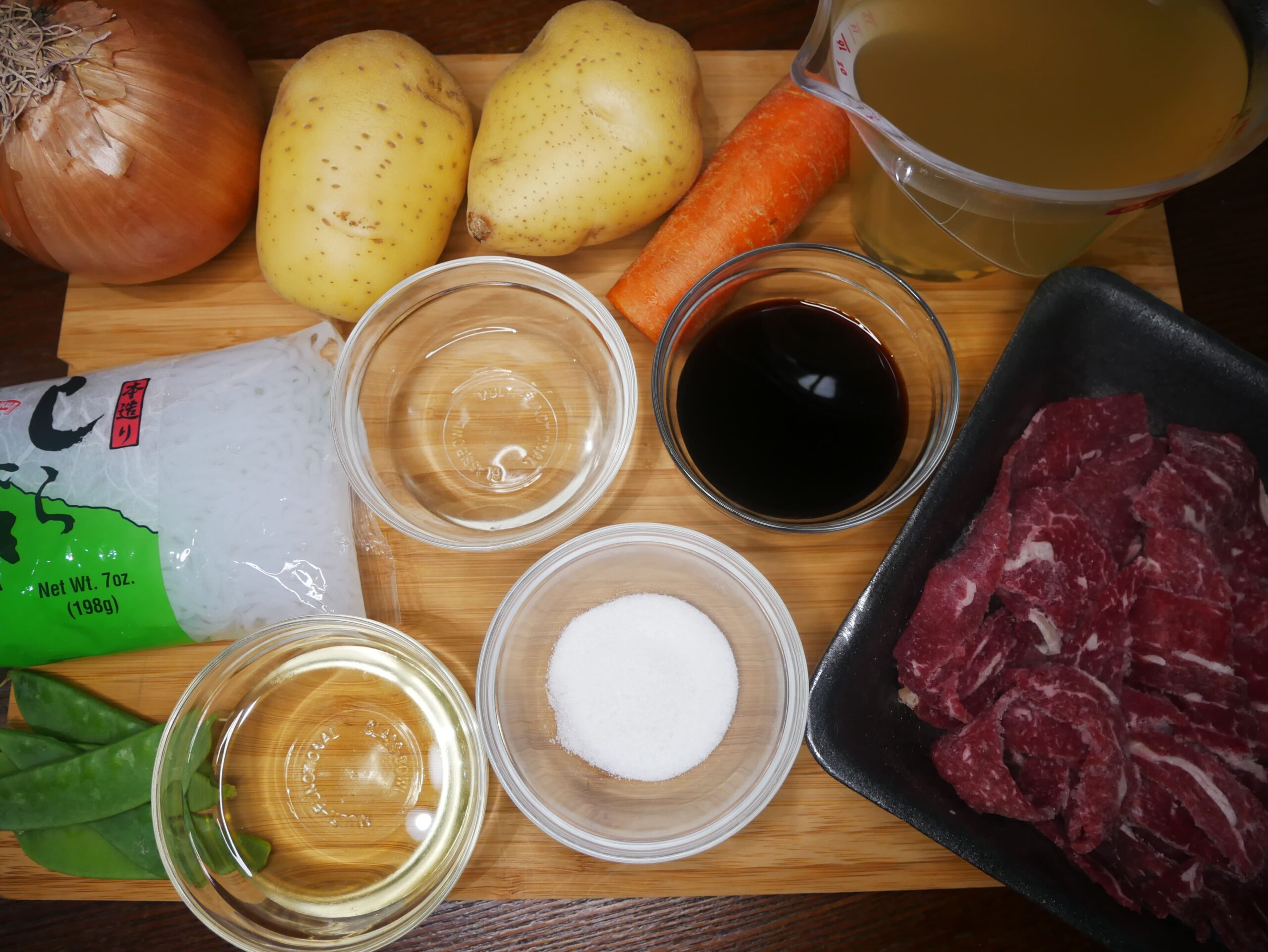
- Peel the onion and cut into 6-8 wedges. Peel the carrot and cut it lengthwise in half first, then cut it into 1 inch chunks.
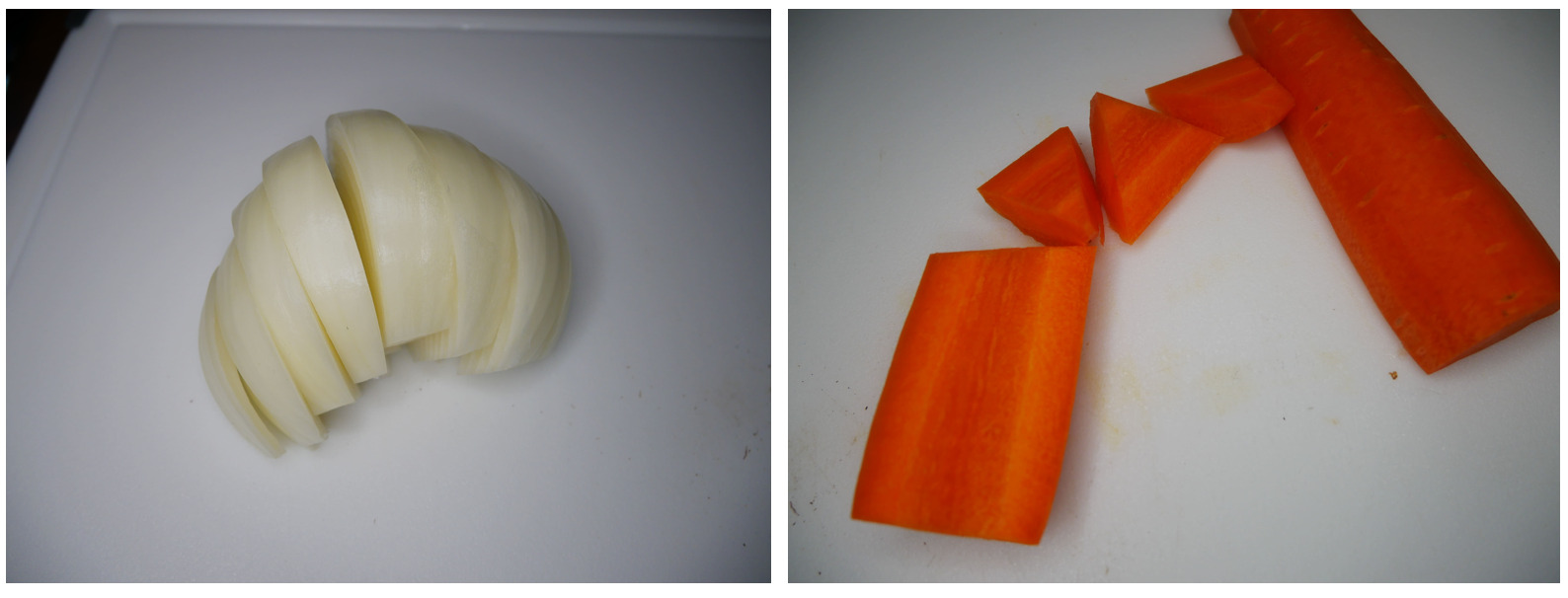
- Peel the potatoes and cut them into quarters. After you cut the potatoes, soak them in water for at least 10 minutes.
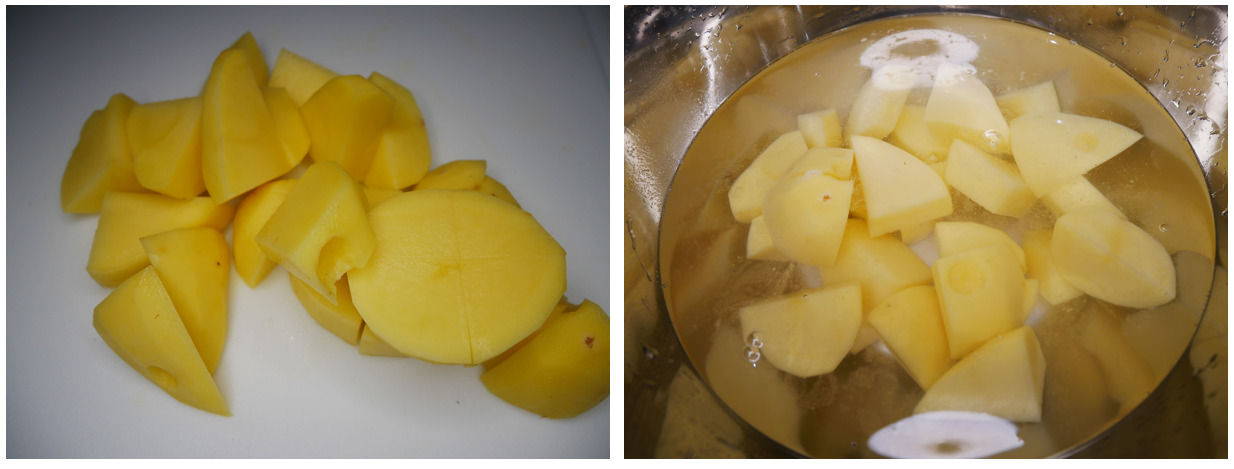
- Remove string from snow peas and put them into boiling water for 30 seconds, then strain them and leave to cool. After they cool, cut them into 1 inch pieces.
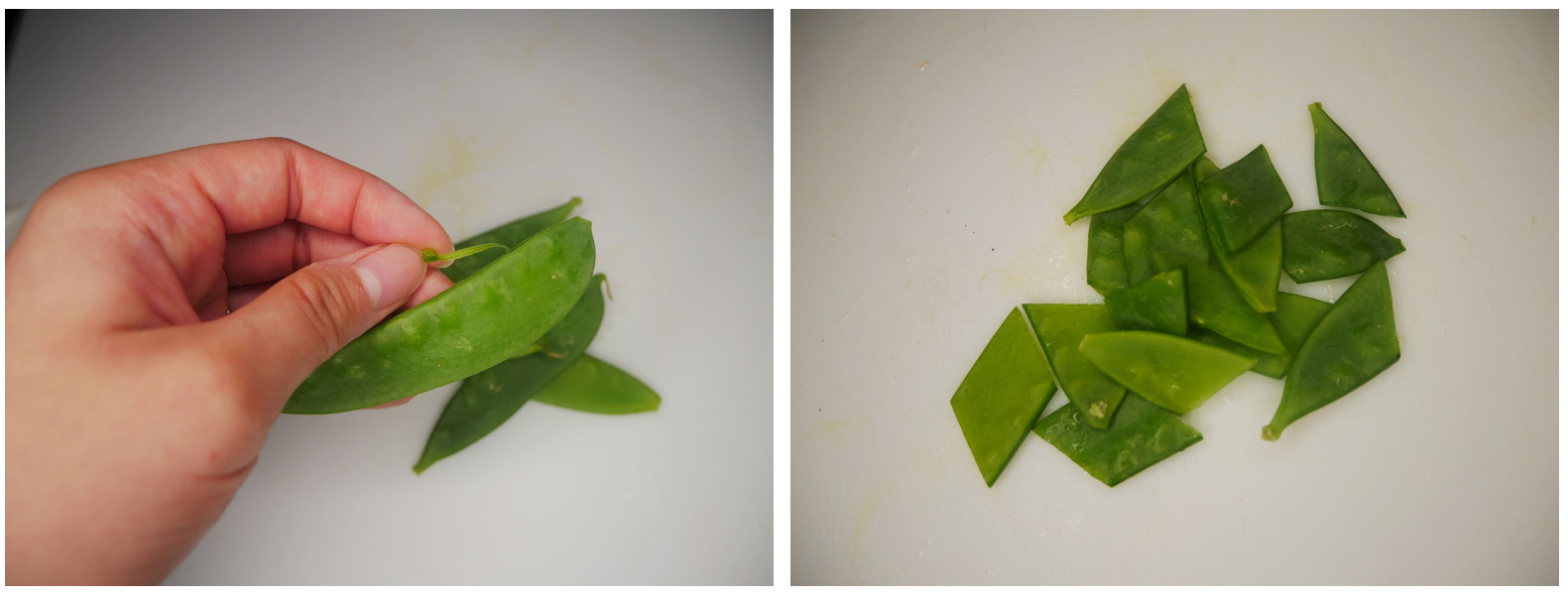
- Drain the shirataki noodles from the package and cook them in boiling water for 2 minutes. Drain the water and wash with cold water. Then cut the noodles into 2 inch lengths.
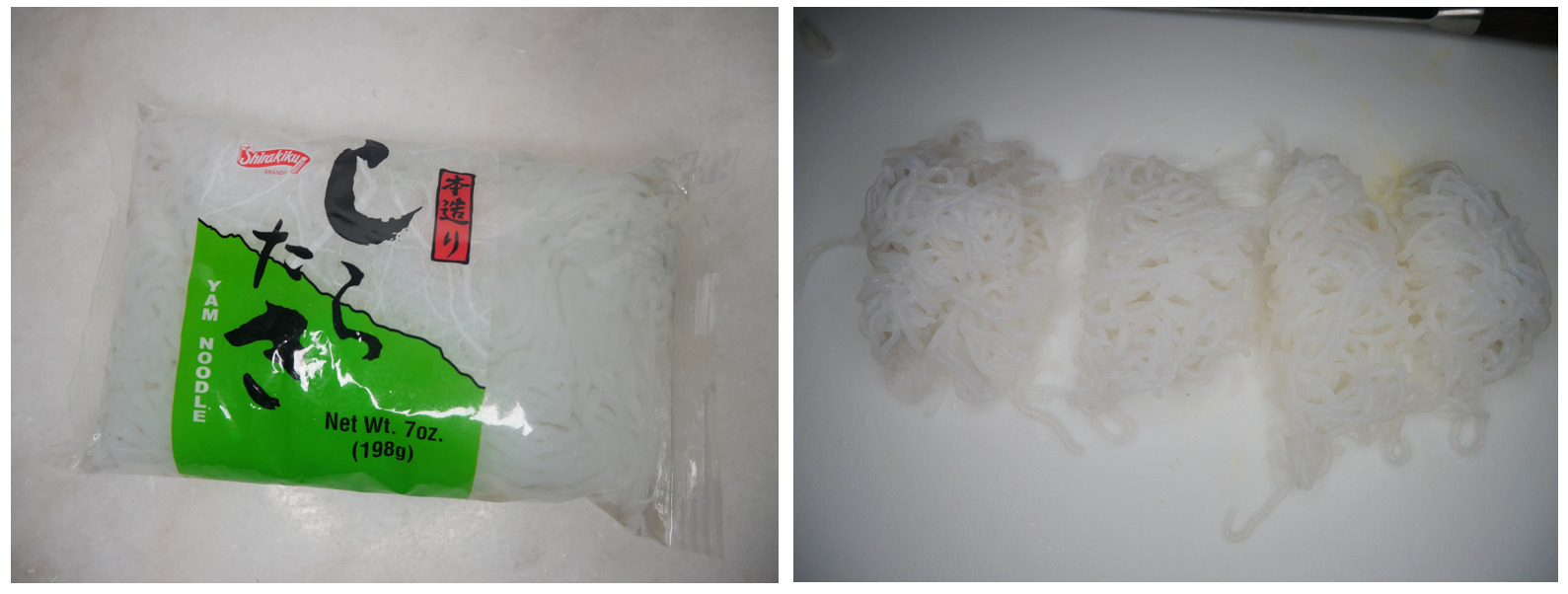
- Cut thinly sliced beef into pieces about 2 inches wide.
- Prepare a large pot and heat vegetable oil on medium heat. Sauté the onions until they are coated in oil, then add the beef and cook until the meat is no longer pink.

- Add the potatoes, carrots, and shirataki noodles to the pot.
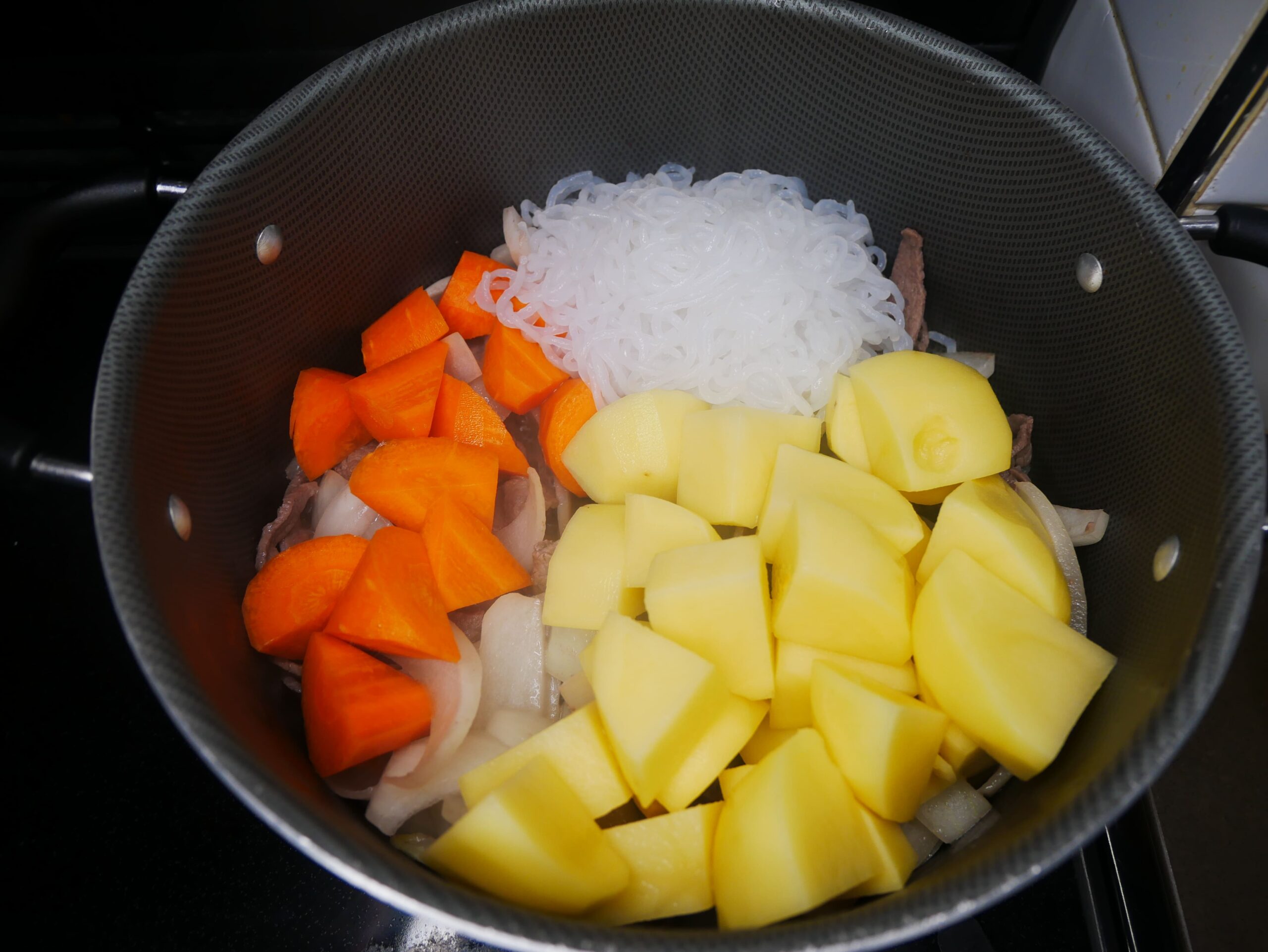
- Add dashi, sake, and mirin. Bring it to a boil and boil for 2 minutes to allow the alcohol to evaporate.
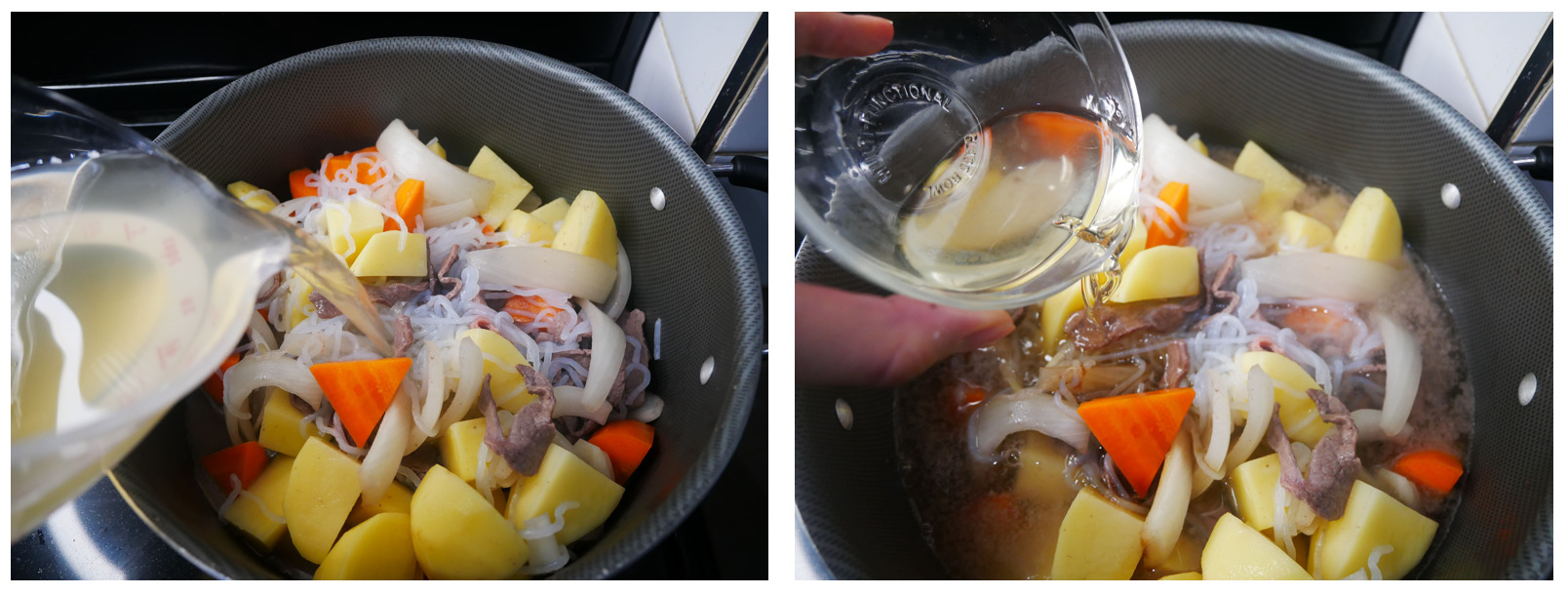
- Add sugar and mix gently. Turn the heat to low.
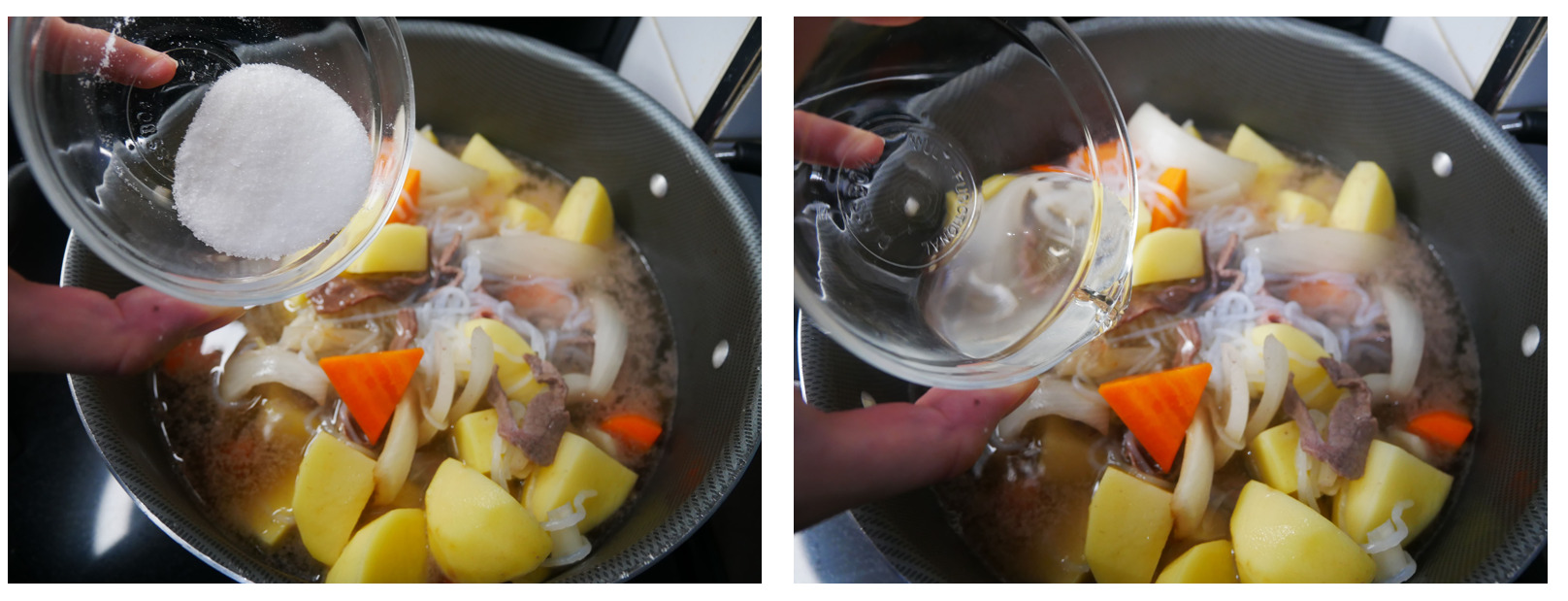
- Use a fine-mesh skimmer to get rid of any fat and foam.
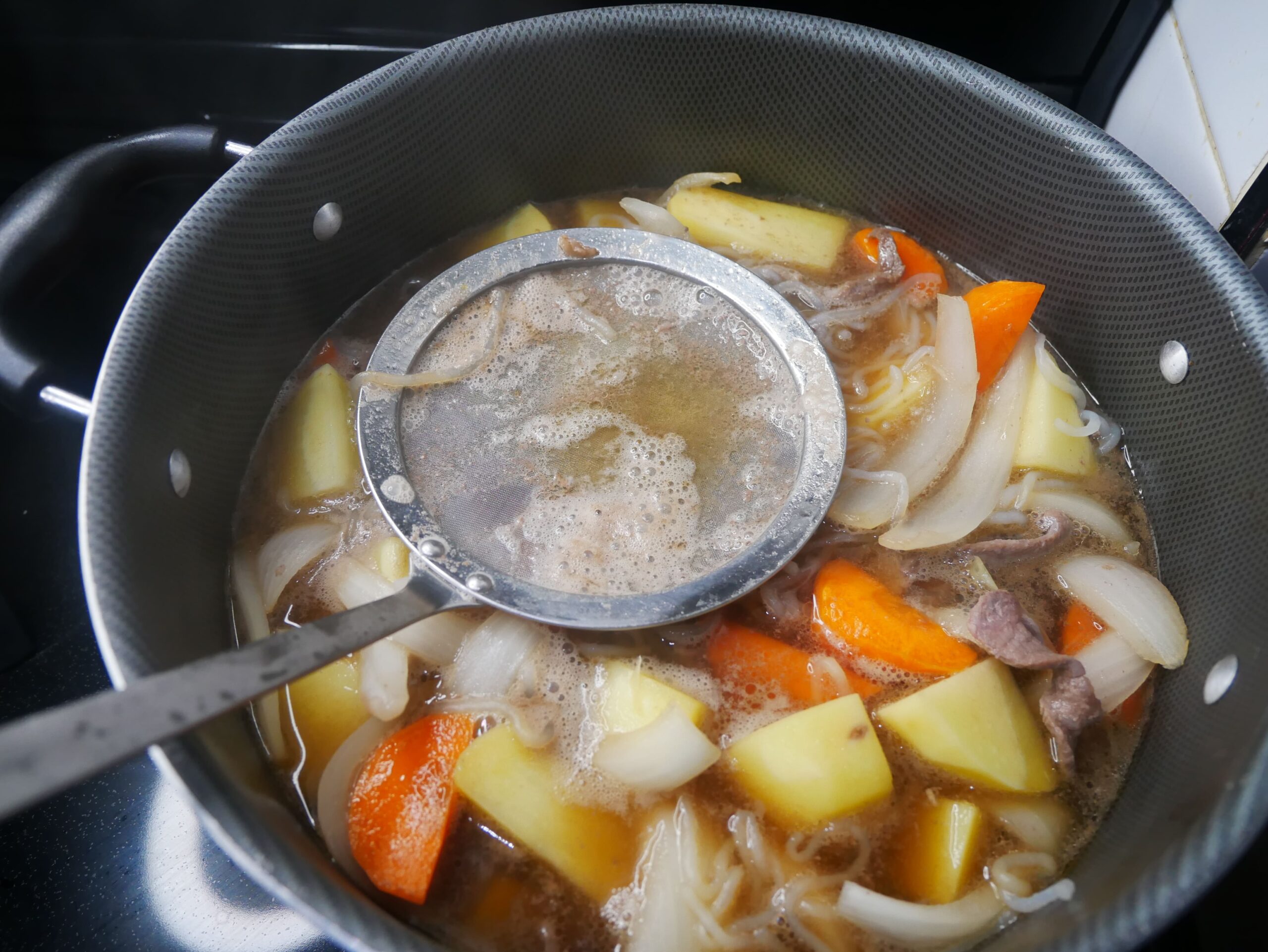
- Make a lid using aluminum foil with little holes using a fork and place on top.*2 Simmer on medium-low heat for 10 -12 minutes, or until the vegetables are cooked. While cooking, ingredients are absorbing the seasoning so do not stir them.
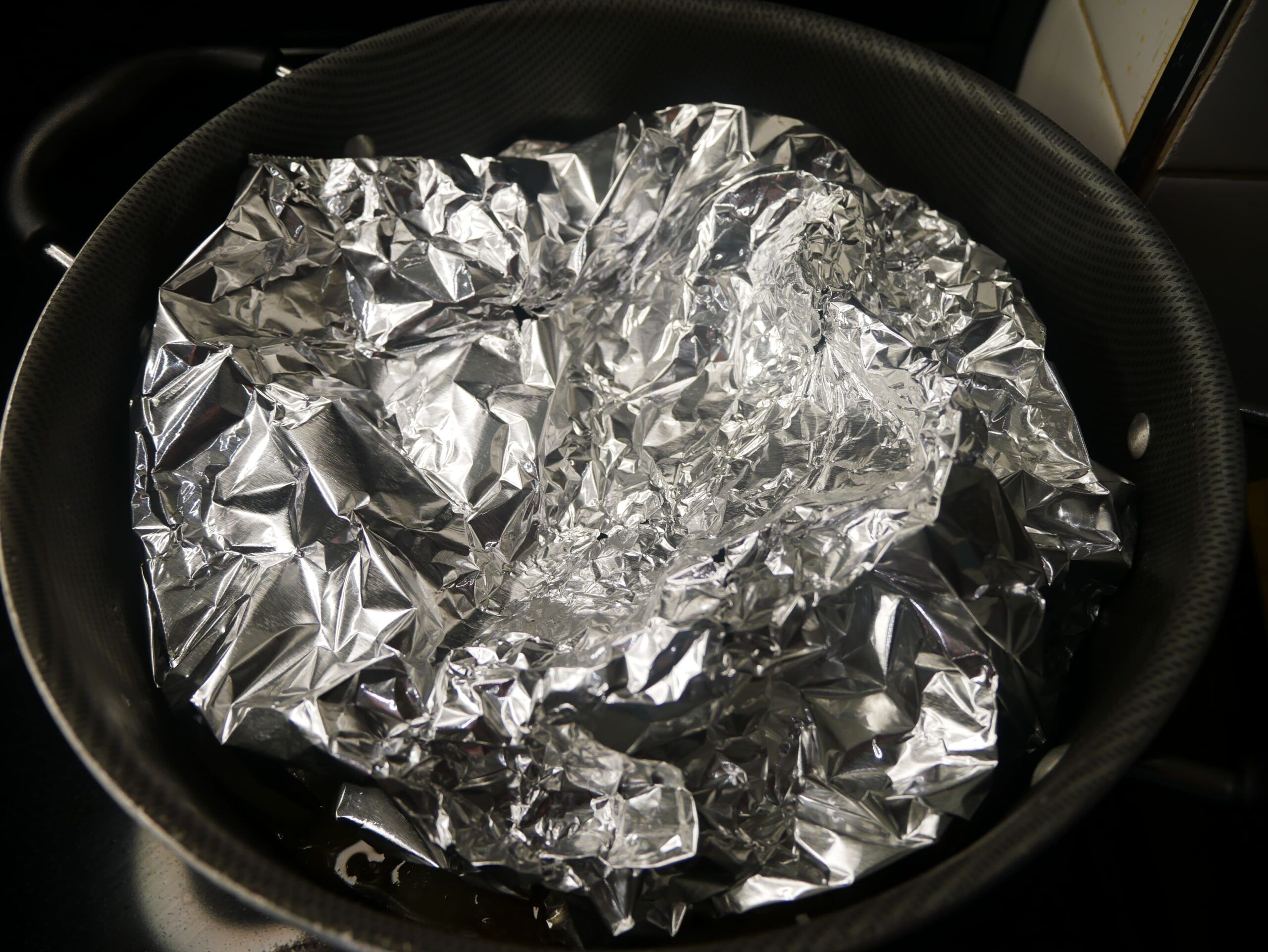
- After 10 -12 minutes, turn the heat to low. Open the lid and add soy sauce. Close the aluminum foil lid again and steam for 5-6 minutes.
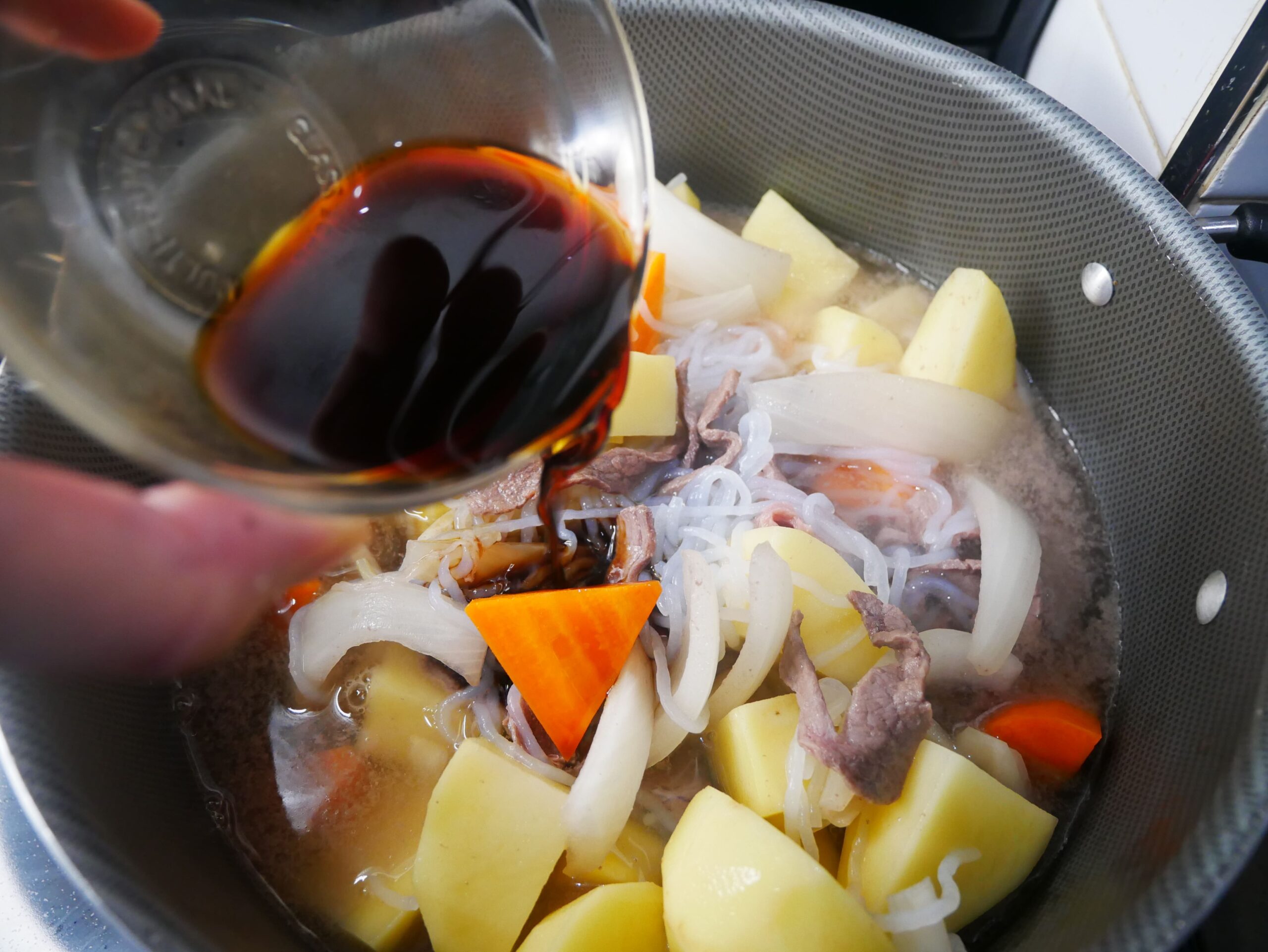
- Open the lid and add snow peas and cook about 1 – 2 minutes with the same low heat. Check the vegetables to see if they are cooked well.
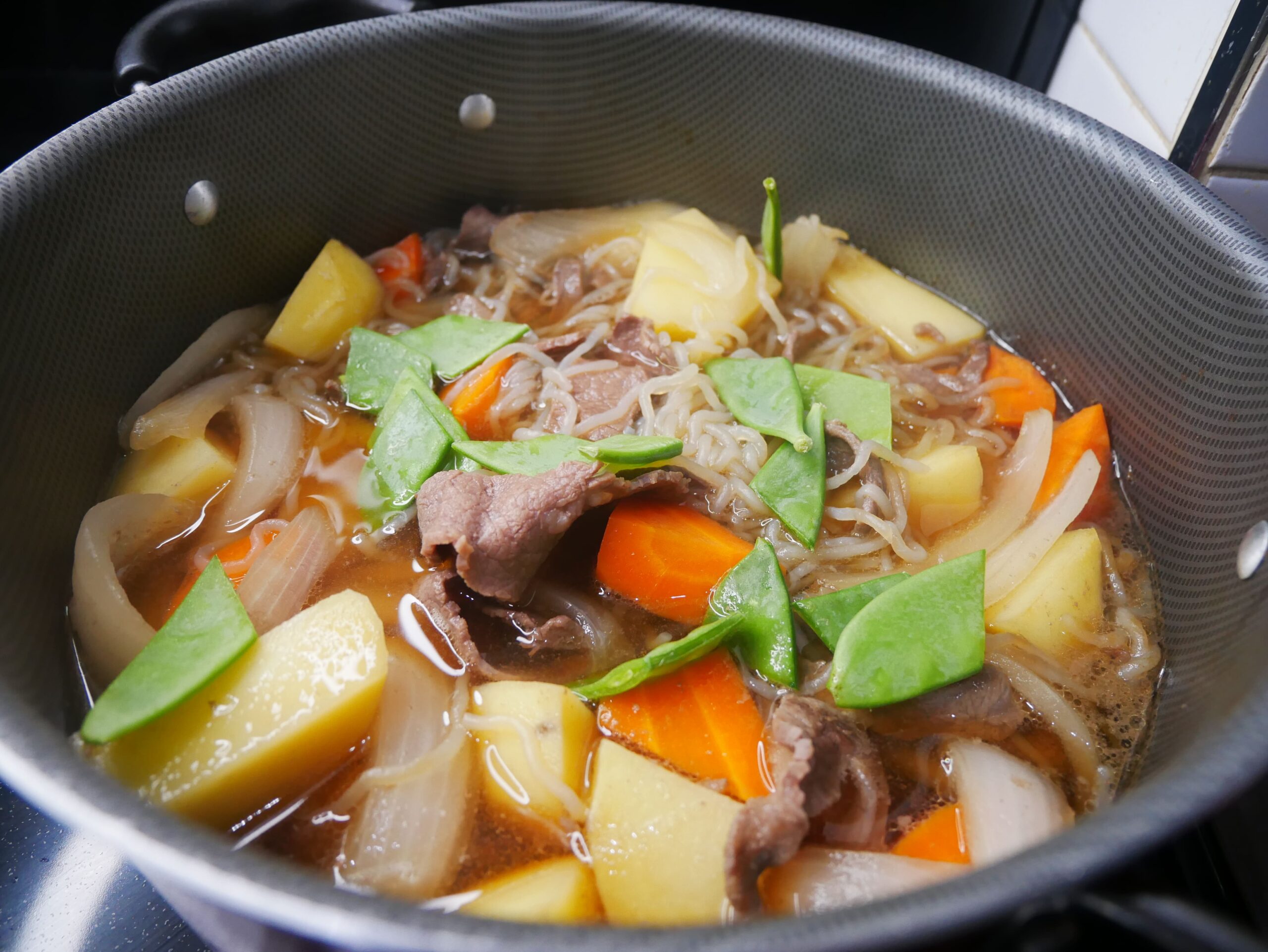
- Let's serve!
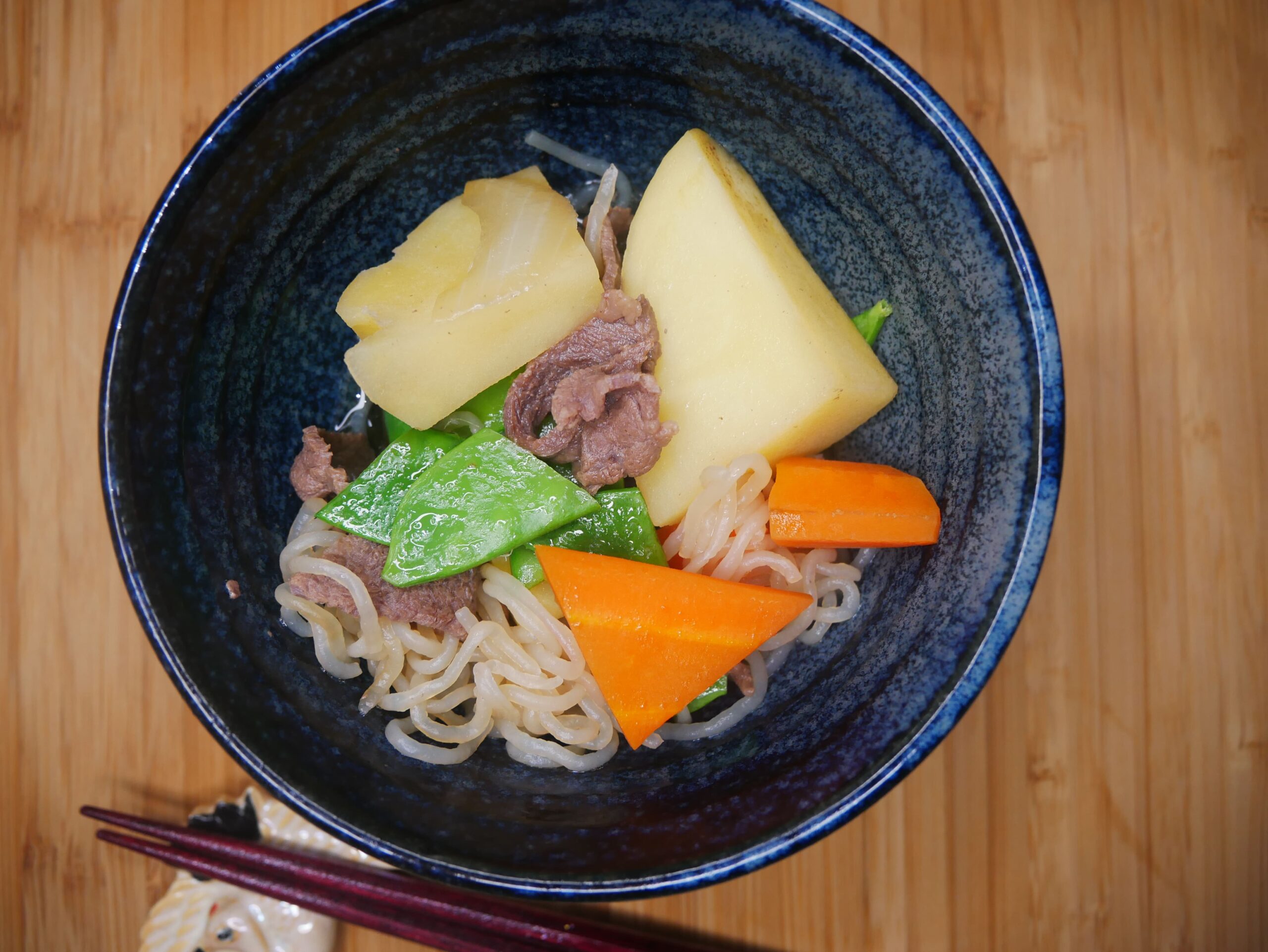
To Store
- Nikujaga is delicious as leftovers so you can absolutely store them in an airtight container in the fridge for up to 2-3 days.
Hi Yuka! I used to have Nikujaga at my favorite Izakaya in Japan. I wanted to make it to remind me of Japan’s life. This recipe was just perfect for that. Will make it again!
Thank you for the heartwarming comment, Victoria! I am glad you enjoy this recipe.